When an organization has a successful ESG strategy, demonstrating sustainable business practices, and complying with ESG criteria, it reassures society, consumers and investors that it can be trusted.
What is ESG?
ESG stands for Environmental, Social and Governance. These make up a set of standards that measure an organization’s transparency and accountability, and its impact on the environment and society. It’s a framework that determines whether a company is financially viable and stable, and asks:
- How much does the business care for the environment?
- How well does it reflect and support society?
- How well run is the company?
In short, ESG is how your business operations contribute to sustainable, viable development, and how it minimizes negative impacts:
Ready to see change? Check out the Qualtrics ESG solution
Environmental criteria
This covers the energy and natural resources your company uses, the waste it produces, and the impact of these on living things. Contribution to carbon emissions, carbon footprint, waste management, climate change and environmental risks come under this category.
Social criteria
Every company impinges upon communities, both near and far. This standard reflects your company’s relationship with the people, communities and organizations where you do business. It covers social factors such as company reputation, diversity, equity and inclusion (DEI), labor relations and community engagement.
Corporate Governance factors
Every company is a legal entity. Governance is the business strategy for how your company is governed, to: comply with the law, serve stakeholders, ensure board diversity, make sound business decisions, choose responsible investing, and implement effective internal practices, systems, procedures and controls.
What is an ESG strategy?
An ESG strategy is the plan you have as a company to meet ESG goals.
You may already have ESG procedures in place, particularly if you embraced CSR. But you want to take ESG performance much further. ESG considerations could include reducing energy consumption (and associated costs), making your workforce and boardroom more diverse, and making customers aware of the sustainability of your goods and services.
A good ESG strategy demonstrates those environmental, social, and governance factors that your business leaders believe to be important for your company operations – both now and in the future. Done well, your ESG strategy will give you a competitive advantage by fulfilling pre-tender and contractual obligations. It will also highlight your responsible approach to stakeholder wellbeing, governance requirements and environmental issues such as greenhouse gas emissions and climate change.
Examples of ESG strategies
We wanted to provide a foundational framework for ESG reporting that chimed with the four World Economic Forum’s key pillars, so we gathered 27,000 responses from across 26 Countries and 16 industries. We discovered the following key performance indicators of a company’s ESG performance that fit with the four pillars, that are examples of ESG practices you can include within your overall strategy:
Pillar 1: PLANET
- Reduce waste
- Communicate efforts to reduce carbon emissions
- Increase usage of renewable energy
- Educate about climate change
Pillar 2: PROSPERITY
- Support social responsibility initiatives
- Grow the economies of surrounding communities
- Provide entrepreneurship opportunities
- Ensure fair diversity in advertising
Pillar 3: PEOPLE
- Ensure equality in hiring
- Foster employee well-being
- Guarantee workplace safety
- Provide job security
Pillar 4: POLICY
- Provide clear understanding of environmental sustainability mission and goals
- Deliver business with integrity
- Create a company mission beyond profit
- Provide products and/or services that improve the lives of customers
Why are ESG strategies so important for businesses?
The times when businesses could do as they wished without regard for consequences are fading. Now, a company is judged not only for what it does, but how it does it. And while investors and consumers expect a company to tread lightly on the world, employees, legislators and regulators demand a positive impact.
Without businesses’ commitment to change, achieving sustainability and prosperity is impossible. Many are deciding to opt for sustainability not just because it’s the right thing to do for the environment and community, but also because it makes good business sense.
A survey by Qualtrics found:
- 70% of employees believe that the organization should make sure that the community around them benefits from their success, rather than having no obligation to the community beyond delivering goods, products and services
- 68% of employees believe that the company should be driven by a purpose that benefits the world, as opposed to focusing solely on delivering a profit to shareholders
- And, 68% think their organization should grow in harmony with natural resources, rather than prioritizing its own growth at the expense of environmental impact
Another survey found that ESG commitments are drivers of consumer purchase and employee engagement:
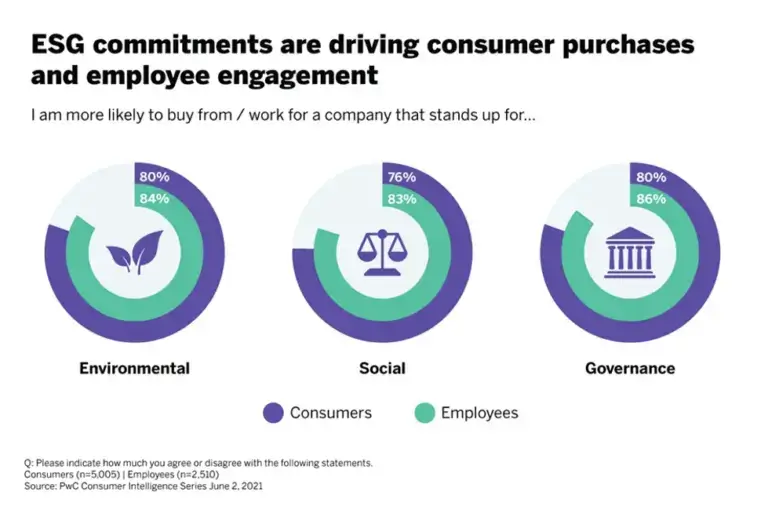
The benefits of ESG integration
When organizations create ESG strategies, there are numerous benefits, including:
Boosting employee productivity, engagement, retention, loyalty, and recruitment
ESG reaches into every area of employee experience, and as we know, a happy workforce delivers a healthy bottom line. Employers recording the highest employee satisfaction had ESG scores 14% higher than the global average, and the reason is that all of us — particularly the younger generation — are placing a greater emphasis on social and environmental factors.
All of us want to work for organizations that understand the importance of protecting and improving the world we live in, and are far more vocal when employers fail to meet the standards we set.
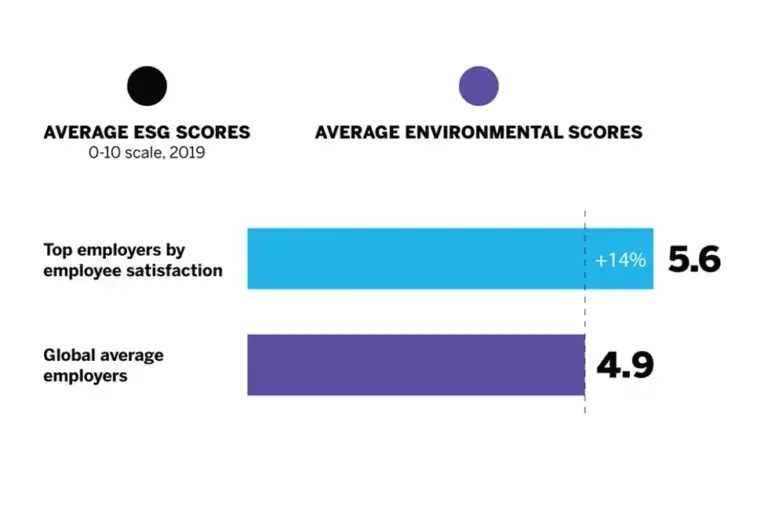
Our 2023 Employee Experience Trends Report found that being employed is more than just having a job. Working for a company is becoming an increasingly important part of a person’s value system. How an organization effectively and consistently demonstrates its values is a significant motivator for employees’ long-term commitment.
Our research found that employees who believe in the values of their organization have higher levels of engagement (+27%) and higher levels of intention to stay (+23%).
From aligning with employees’ green principles to delivering sound health and safety policies, ESG contributes to productivity, engagement, attracts top talent – and retains them.
More sustainability efforts and cost-effectiveness
Implementing ESG strategies can help companies cut energy, water and waste expenses, reducing operating expenses.
Attracting customers
Consumers are being more selective, choosing to spend their money with more environmentally and socially responsible companies. For example, 62% of Gen Z customers prefer to buy from sustainable brands, and 76% of consumers said they would ‘discontinue relations with companies that treat employees, communities and the environment poorly’. Closer ties with the local community help you engage with potential customers, and suppliers.
Attracting investors
ESG is moving from ‘nice to have’ to a strategic imperative as investors are increasingly looking at companies’ ESG risks when considering investment products. It’s estimated that ESG assets could continue to grow at a 16% compound annual growth rate (CAGR), totaling almost $35 trillion by 2025:
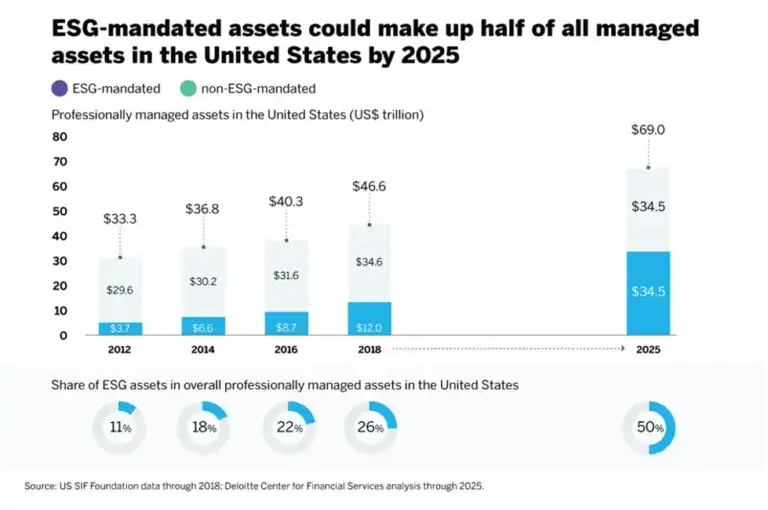
By paying close attention to governance principles, compliance and regulatory requirements and other ESG factors, your business avoids the penalties and reputational damage that results from breaches, and attracts ESG investing.
Increase brand awareness and value
There’s a clear link between brand strength and a company’s sustainability practices — customers are increasingly seeking out brands and businesses that uphold good environmental and social practices. According to data from Bain & Company, the brands that scored highest on sustainability generated five times the revenue growth of companies scoring lowest.
Driving top-line growth
By offering more sustainable products and establishing a stronger ESG reputation — as above — businesses can attract more B2B and B2C customers. The reality is that people want to work for and buy from organizations that have sustainability and social responsibility (and needs) at the heart of what they do.
Minimizing regulatory and legal interventions
When organizations operate sustainably, they not only reduce the risk of being fined for not adhering to legislation, but they also gain more support from governments and subsidiaries, while having the opportunity to exercise more strategic freedom (as more avenues open).
How to create an ESG strategy: 10 steps for success
1. Audit what you already do
A company that has nothing in place regarding ESG strategy is so outdated that it really cannot exist in today’s world. Chances are, you already have ESG procedures in place, but there may be gaps, and it’s these you need to address. From something as simple as fixing dripping taps in restrooms to questioning a supplier about factory standards where your products are made, you can begin to fill these gaps in using operational data such as energy bills, and experience data from pulse surveys.
2. Get stakeholder engagement
Stakeholders are no longer just the C-suite and your investors; they are employees and customers too. This is where employee surveys and customer surveys come into their own. What do people value? What can they see is wrong? What is working well? What is performing badly? What is the change they would like to see?
Run surveys to find out which ESG factors have the greatest impact on employee and customer experiences. ESG can be overwhelming, so understanding what is most important to your customers and employees can assist you in prioritizing the factors. Data from surveys will highlight areas for ESG improvement you probably didn’t even know about.
Even better, use Qualtrics® EX ESG solution. This will help you:
1. Discover how your employees perceive the organization’s performance in key ESG criteria areas
2. Uncover what is most important to your employees, and learn how ESG performance affects their employee experience
3. Pinpoint key focus areas for improvement, towards your ESG goals
3. Know what best practice looks like
Your business is unique, and your ESG strategy will be bespoke to its unique needs. But there will be ESG-leading businesses that you can look to for inspiration. Maybe you cannot contribute millions of hours of community service like Starbucks does, but you could use this as a model at your scale.
4. ESG team: assemble!
Implementing your ESG strategy will need a team drawn from the whole of your organization, from senior executives and board members to the shop floor. Make this team of champions as diverse as you can – their different perspectives and experiences are your lenses to focus on ESG issues, spread the word, and meet targets. Make sure every team member is clear on what they are doing and owns accountability.
And get employees involved with ESG initiatives such as volunteering, empowering them to come up with some of their own, once data has confirmed the need.
5. Gather your ESG data and evidence
Clearly, being able to measure ESG data in the same way that you measure employee engagement or customer satisfaction is the ideal, but it’s often more challenging when you don’t have centralized metrics to track from a baseline.
The HR department will hold some data: for example, ESG metrics such as volunteering records, workforce demographics, DEI, training investments, hiring, retention, and supplier diversity.
Operational (O) data will give you an environmental picture around energy (renewable/non-renewable) and water use, waste, packaging, recycling, turnover and profit.
For governance, look at the policies currently in place, what’s missing, and whether they chime with sector expectations. Maybe you are a clothing company with an environmental policy, but none on modern slavery or human rights. Maybe you’re in the fast-food industry but have no policies on animal welfare or sustainable farming. It’s the gaps in the supply chain you are looking for.
As well as this, gather feedback from your employees on how they perceive the organization’s performance against key ESG factors. Then, use this feedback to inform your strategy, as well as understand how your ESG efforts are influencing the overall employee experience.
This kind of approach is crucial as we know that ESG is an increasingly important area (and priority) for employees, customers and the market alike.
Finally, gather all your ESG data points and feed them into your ESG system as a baseline to measure improvement. Use this data to benchmark your organization against others in the market and support new initiatives to help support ESG goals.
6. Align your business with international frameworks
Here are some key ESG standards, metrics and a global reporting initiative to get you started:
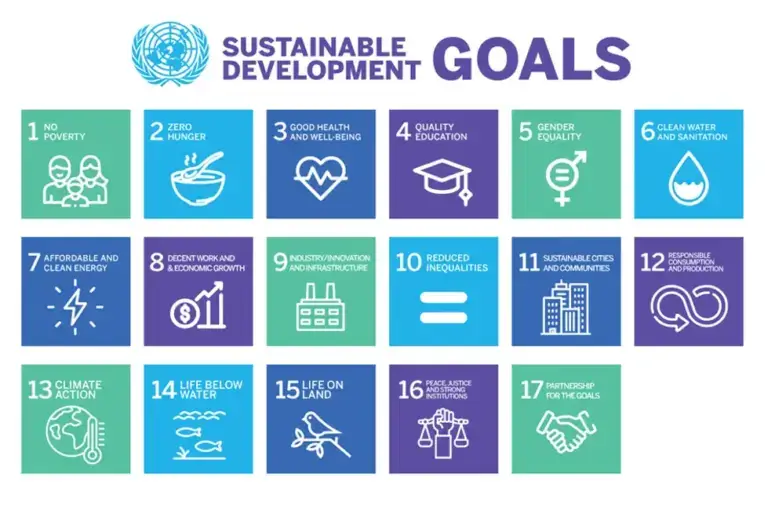
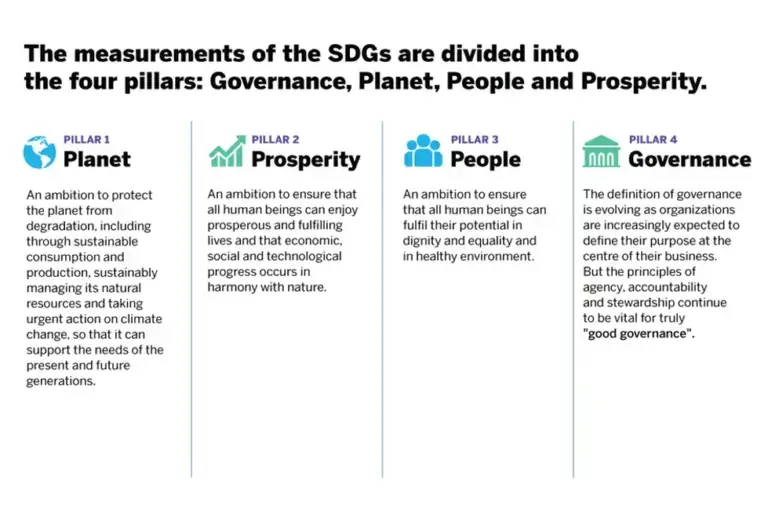
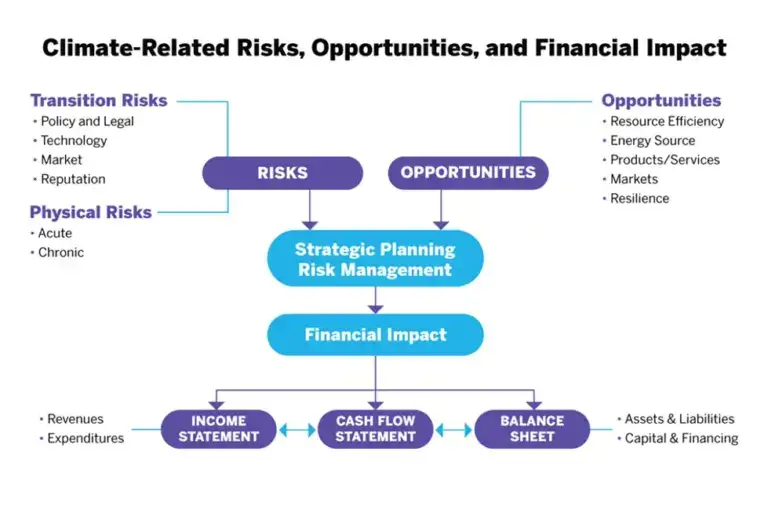
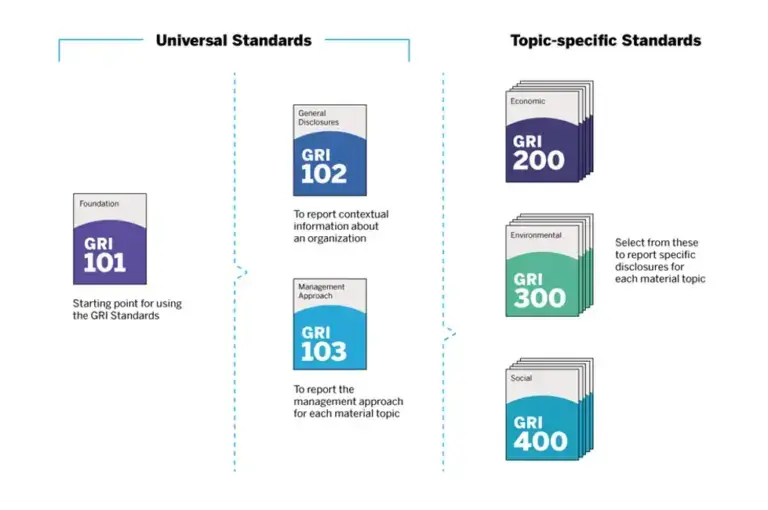
7. Continually measure and act
ESG is constantly shifting as the world throws up more challenges and considerations. Your ESG strategy needs to be as agile as possible to stay relevant in turbulent times, shifting concerns of key stakeholders, financial performance, and new rules and regulations. Keep measuring ESG metrics, report progress, and keep taking action.
8. Share your ESG story
Data is just a load of numbers until it tells a story, with a beginning, a middle and an end. ESG reporting, with its human, triumph-in-adversity themes is perfect for storifying and sharing on the company websites, social media, and other channels of communication. The more people hear about ESG successes, the more they will buy into them to make a difference in the world.
9. Associate with equally ethical companies
“A person is known by the company they keep” so the saying goes, and even the shiniest ESG strategy can be tarnished if your clients or suppliers all along your supply chain are not aligned with the same standards. Who are their clients? More tellingly, who aren’t their clients? Are they living their mission statement? Are they accredited for their ESG efforts by the likes of the Sustainability Accounting Standards Board, Investors in People, or the Rainforest Alliance? If not, why not? What do their employees really think?
10. Create a company culture with embedded ESG principles
A company website can have glossy pictures of volunteering and a whole page of accreditations, but if employees don’t feel the company is genuinely socially or environmentally responsible, word will get out, often harmfully, on employee or client review sites. When you create a culture of belonging, are honest with your ESG performance and efforts, and are transparent with your achievements, your stakeholders will be your best ambassadors – and that can only be good for business.
Develop your ESG strategy with our ESG XM solution
Rather than outsourcing your ESG efforts to an external agency, keep them in-house with our EX ESG solution. We’ve created this solution to help business leaders gather stakeholders’ perspectives and make data-driven decisions about achieving ESG objectives while also improving employee, customer, and brand experiences.
You’ll be able to:
1. Understand how your business is performing on key ESG targets from employees’, customers’ and the market’s perspectives
2. Find out what’s driving ESG perception, and what matters most to your people
3. Identify what actions to take to implement genuine change in the movement towards sustainability, and a better future
We’re moving further into an era where we are seeing more organizations defining success as not only meeting their financial goals, but also sustainability goals, by closing the gap on ESG targets and aspirations. Having a sustainability strategy and ESG plan will only become more important in the future.
Ready to see change? Check out the Qualtrics ESG Solution